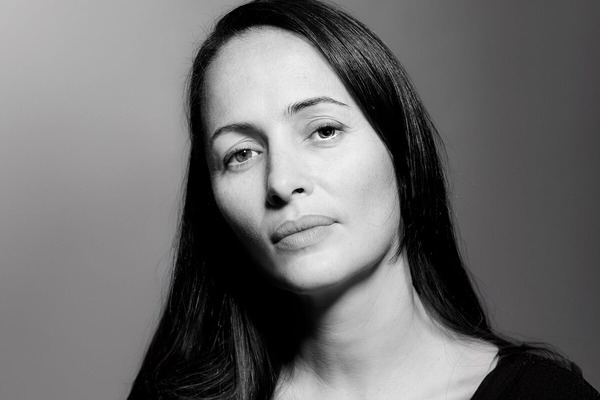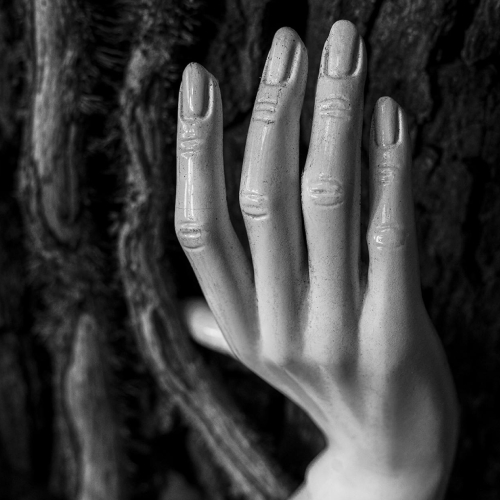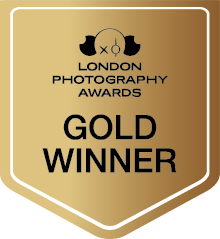
Julianne Rose
1. Can you introduce yourself and talk about how you got into photography?
Hi! I'm Julianne Rose, an Australian photographer, based mostly in Paris for the last 30 years. As a teenager, I aspired to become a photographer but I grew up in a small town in north Australia where there were no opportunities to study photography.
Turning 18, I won Australia’s Face of the 80s; a beauty quest that gave me the chance to travel to Europe initially as a model before pursuing my dream to be a photographer a few years later.
2. Where did you study photography?
In the school of Hard Knocks! My modeling experience allowed me to work with some of the most awesome photographers of the era, talents such as Guy Bourdin, Peter Lindeburg, Dominique Issermann, Steve Hiett, and Sarah Moon just to name a few.
I devoured all I could about lighting, different cameras & formats, and the secrets of production & direction. I no doubt drove everyone crazy at the time but it was definitely the greatest photography school I could have hoped for.
There is so much advantage in learning on the field. I then became a professional photographer in the mid-90s, initially in fashion and advertising and later in fine art.
3. Do you remember your first shot? What was it?
The very first photo I remember taking when I was a young child was a Polaroid of my black cat Gourmet but my first professional photo was of my 3-year-old daughter running through the Jardin des Tuileries in Paris.
This shot won me my first-ever photography award and is still amongst my favourites 30 years later.
4. What equipment do you use?
Starting photography in the 90’s I was introduced to different cameras and formats. When shooting in the studio I adopted either Hasselblad or Pentax medium format cameras and when on location Canon became my favourite brand, especially for their amazing long focal lenses like the 200mm f/1.4 which I still treasure and use whenever I can.
When Canon revolutionised the photo industry in 2001 with the release of the EOS1, I divided my work between analog and digital, integrating video into my work when the EOS 5D was released in 2005.
I still use Canon equipment and I’ve also recently adopted the Sony Alpha 7 collection to which I can also adapt my favourite Canon and Nikon lenses.
The Sony Alpha 7 is a great lightweight and non-intrusive camera, ideal for location shooting. I also like the possibility of being able to work with high ASA when necessary, without too much noise.
5. What do you hope to achieve?
My work is mainly compiled of personal artistic projects with some sort of message or element of social engagement. I’d like to be able to exchange my views with as many people as possible, to help sensibilise others to some of the important issues relevant in contemporary society.
I believe this is part of an artist’s role. Photography can be a powerful tool, allowing the viewer to open certain doors of perception, doors that may not be so easily accessed alone.
6. What compliment inspired/touched you the most?
A compliment that comes to mind, which particularly touched me was from a collector I saw several years after she’d bought some of my work:
"Your photos have become part of my everyday life. It’s an honour to be able to look at the world through your lens"
This compliment particularly affected me because when I part with a photograph, I secretly hope it may be able to evoke in others, some of the emotions I experience during the whole creative process.
7. What inspires your unique storytelling?
Much of my storytelling inspiration comes from my own personal observations and experiences in the fashion and art industries. My positions as a woman and a mother have also driven many of my reflections and photography ideas over the years. I’ve also become preoccupied with the complicated relationship between humanity and the rest of the natural environment and I'm finding new inspiration in this area for present and future photographic projects.
8. What THREE (3) words describe your photography style?
Narrative, Evocative, and Surreal.
9. Congratulations! As the winner of the London Photography Awards, what does it mean for you and your team to receive this distinction?
After having to pause my artistic photography for a period, I’ve recently picked up again. The London Photography Awards is the first competition I’ve entered for years and winning 2 golds in the fine arts section was both a tremendous surprise and an honour.
Having my new work recognised by some of the top professionals in today’s photography industry is both encouraging and reassuring. This immediate recognition helps me to feel like I’m where I should be.
10. Can you explain a bit about the winning work you entered into the 2024 London Photography Awards, and why you chose to enter this project?
The series I entered entitled "The Nature of all Things" is an exploration of mankind’s relationship with fellow living beings, in this series in particular, the forest.
Humans tend to see themselves as separate entities to nature rather than an integral element of nature itself. This perception of identity interests me. Exploring the singular question of form, blurring the frontiers between humans and their natural environment, the project questions the notion of this separation.
Confronting us with both our power over nature and our responsibility towards it, "The Nature of all Things" aims to encourage urgent reconsideration of our relationship with the natural environment and to recognise and protect the beauty in our shared existence.
If nature were to take on human forms, would we continue to treat it with such indifference?
11. How has winning an award developed your career?
Winning this LPA award is great exposure and recognition for my new work, generating enthusiasm both for myself and my public.
12. Name 1-3 photographers who have inspired you.
I think the first important influence in my photography career would be Sally Mann. I was mesmerised by her amazing black-and-white photography, especially the way she photographed her children.
Her imagery inspired me to photograph my own life and develop my own personal narrative. French masters Robert Doisneau and Jacques-Henri Lartigue were also early inspirations as I initially preferred shooting lifestyle photos rather than any conceptual images.
Then, later down the track, I discovered the artist Cindy Sherman who integrated photography as a central medium into installations and videos. Sherman's work unveiled a whole new world of possibilities to explore within my own photographic narrative.
13. What was the best piece of advice you were given starting out, by a mentor or your role model?
Even though it’s imperative to have a strong personal vision, never underestimate the importance of the purely technical aspects of photography. Simply having a "feeling" won‘t fill that white page!
14. What advice would you give someone who would like to become a photographer today?
I would probably give that very same advice but perhaps add on the necessity for at least minimal business-commercial skills. Like everything in contemporary society, photography is also a business.
Knowing how to show and sell your photos has become an important aspect of our art. Though this is often the hardest step for so many artists, it has definitely become a major element in success with the emergence of social media and extreme competition in the photography world.
It’s not much use having great talent if nobody knows you exist!
15. What is your key to success? Any parting words of wisdom?
Shoot what you see and not what you think others want to see. Believe and trust in your personal vision and when life gets blurry, find a way to adjust your focus!
16. How do you stay in that space of being receptive to new information and knowledge?
I’m a very curious and independent-minded artist. I don’t follow any mainstream media and I find most of my inspiration in human relations, nature, and spirituality. After 30 years in photography, I can assure you there’s loads of inspiration out there to capture.
17. Which THREE (3) friends/peers would you nominate to participate in the next London Photography Awards?
Françoise Schneiders, Arthur Laforge, and Alexandre Jais.
18. Which THREE (3) peers, within the photography industry, would you nominate to be a judge in the next London Photography Awards? (You may include yourself within, and please include the email addresses)
Jeff Manzetti – jeffmanzetti13@gmail.com
Dominique Marzotto - dominique.marzotto@equinoxetbc.fr
Julianne Rose – julianne.studio13@gmail.com

